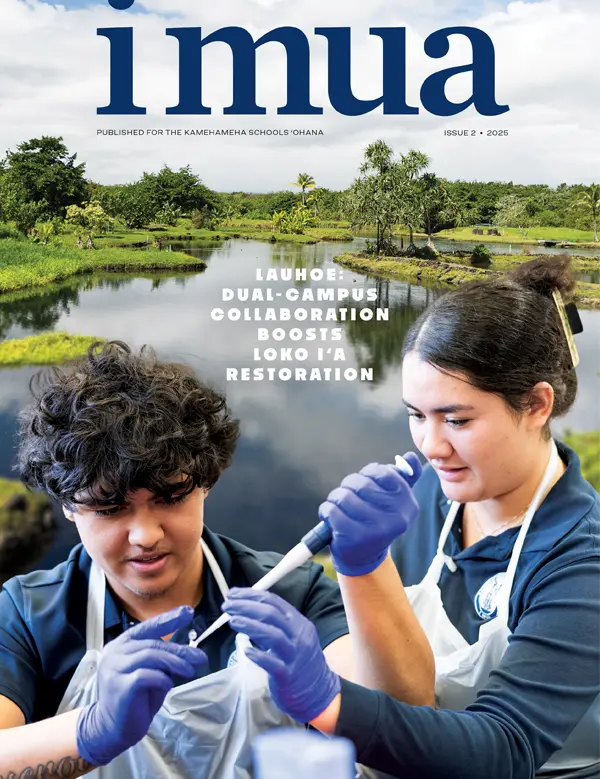Kamehameha Schools Seeks New Hearing on Admissions Case
August 23, 2005
Contributed by
Thomas Yoshida
The 24 judges from the 9th Circuit Court of Appeals now have until Sept. 13 to call for a vote or to request an opinion from the original three-judge panel on whether to rehear the case. In the meantime, Kamehameha Schools' preference policy, which has been in place since the schools were founded in 1887, remains in effect.
The petition for review was filed on behalf of Kamehameha Schools by Kathleen M. Sullivan, the Palo Alto-based attorney who argued the schools' case before the 9th Circuit panel in November 2004.
In the petition, Sullivan states: "The panel's decision is unprecedented; it is the first in our nation's history to invalidate a remedial education policy by a private school for the benefits of any minority group, much less an indigenous people. It did so even though there is no dispute that the admissions policy remedies severe ongoing harms to Native Hawaiians, and no dispute that Congress has itself enacted a host of explicit preferences for Native Hawaiians to remedy those same harms. Kamehameha Schools respectfully submits that the decision warrants this Court's en banc review and reversal."
In their August 2 ruling, the panel acknowledged that Kamehameha Schools' policy serves a remedial purpose. However, Judges Jay Bybee and Robert Beezer opined that the policy is not justified because it acts as an "absolute bar" to non-Hawaiian applicants.
In her dissent, Judge Susan Graber noted that since the preference policy is being challenged on the basis of a federal statute, the court must consider Congressional intent when interpreting the statute. She cited the many laws enacted by Congress to provide exclusive remedial preferences for Native Hawaiians as evidence of a "special trust relationship" between Hawaiians and the United States that parallels the relationship between the federal government and Native Americans, and which allows for preferences such as those provided by Kamehameha Schools. Graber wrote: "the statutory context demonstrates that Congress did not intend for 1981 to bar all exclusive preferences to remedy the severe educational deficits suffered by Native Hawaiians, a population unique within the country."
In its petition, Kamehameha Schools argues that the dissenting opinion is correct, stating: "Congress has recognized the political status of Native Hawaiians in establishing and justifying numerous remedial programs for their exclusive benefit. The panel majority erred in disregarding this powerful evidence of what, in the eyes of Congress, qualifies as a legitimate remedial reason for a preference of the sort contained in Kamehameha Schools' admissions policy.
"The circumstances of this case are unique," the petition states. "The needs of Native Hawaiians are immense, in part because their lands have been systematically taken from them during the past 150 years, and the limited resources of the Schools are among the last available to them. The court erred in failing to consider whether, in light of these circumstances, the admissions policy is necessary to accomplish Kamehameha's (and Congress') mission of improving the well-being of children of Native ancestry and preserving the Native Hawaiian culture."
 Petition for en banc review (Adobe PDF 2.69 MB)
Petition for en banc review (Adobe PDF 2.69 MB)











